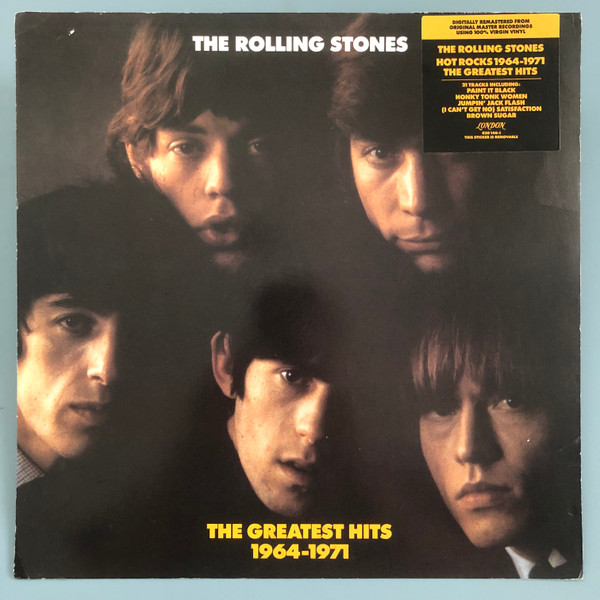Hot Rocks - The Greatest Hits 1964-1971 by Rolling Stones, The

Part of loving 1976’s <i>Black and Blue</i>—and there’s a lot to love—is letting go of what you expect from The Rolling Stones. They were still a rock band, if rock was what you wanted: “Hand of Fate” could’ve been on <i>Beggars Banquet</i> and “Crazy Mama” on <i>Exile on Main St.</i> But where <i>Goats Head Soup</i> and <i>It’s Only Rock ’n’ Roll</i> worked to keep continuity with the sound they developed in the late ’60s, <i>Black and Blue</i> didn’t bother trying.<br /> Jagger had moved to New York and fallen in love with funk and disco (“Hot Stuff”, “Hey Negrita”); Keith Richards with reggae (“Cherry Oh Baby”). Mick Taylor left the band and Ron Wood joined, stripping out the guitar solos and moving back towards pure rhythm. The songs were short, the grooves were long, and the performances—Jaggers’s, especially—combined sex and humour in ways they never had before. That “Hot Stuff” was the band’s first song to make the R&B charts since “19th Nervous Breakdown” 10 years earlier made sense: Not since their early albums had they sounded so connected to Black music, or so joyfully indebted to it.<br /> The critic Lester Bangs called it the “first meaningless Rolling Stones album”. An insult, of course—but it could’ve just as well been a compliment. After the relentless significance of the band’s late-’60s and early-’70s run—the politics, the violence, the cultural referenda—<i>Black and Blue</i> felt like a liberation, like fresh air. They sounded funny, weird and alive. And when they downshifted for the ballads (“Memory Motel” and the classic “Fool to Cry”), they did so with a softness that penetrated deeper than any heavy-handed approach might.
